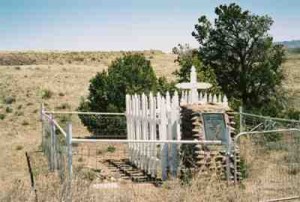Brief by Central Staff
Public Health – June 2007 – Colorado Central Magazine
This isn’t a good year to have rodents around. Squirrels in Denver have been killed by the plague, and an Alamosa woman was killed by hantavirus. Both diseases are spread by rodents.
On May 7, the Alamosa County Nursing Service announced the 28-year-old woman’s death, but did not provide many details, such as her name, the date of her death, or how she became infected.
Humans get hantavirus from exposure to infected deer mice, which are common in Colorado. The dust from mouse hair and dried droppings can cause infection. Early symptoms include fever, chills, headache and severe muscle pain. Then fluid builds up in the lungs, causing a dry cough and difficult breathing.
The federal Center for Disease Control recommends precautions when cleaning or working in potential rodent territory, like a shed. Open doors and windows for at least an hour before going to work, wear a dust mask, and clean with a solution of one part bleach to nine parts water. Woodpiles and similar rodent habitat should be at least 100 feet from a residence.
Keeping rattlesnakes around — they eat mice — might also work, but no official body has recommended that.
The plague — labeled the “Black Death” when it killed millions in Europe in the 14th century — has been found this spring on 15 dead squirrels in and around Denver, and one rabbit.
The disease is carried by fleas that infect wild rodents, as well as rabbits and cats. The fleas can jump from these hosts, even before their deaths, to other animals or humans.
Some animals — canines and birds — seldom catch the plague, but can carry the fleas to humans.
Only one human case of plague has been reported this year; a 49-year-old man in San Juan County, N.M., was hospitalized and recovered. Plague cases were rare during the drought, but now that there’s more moisture, there is more greenery and therefore more rodents which may carry fleas.
If you see a dead squirrel, the state wants you to call 877-462-2911 to report the location and determine whether it should be saved for testing. If so, use gloves or a shovel, and put the carcass in a plastic bag.
Otherwise, keep your distance from all wild rodents, dead or alive.

